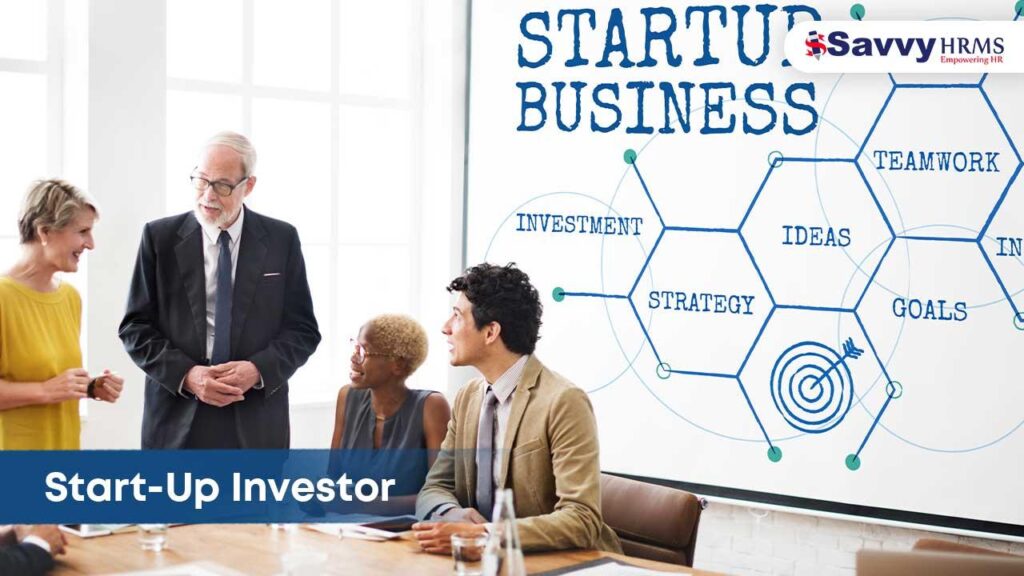In the fast-paced business landscape we live in. It is not just beneficial to have a Startup Investor; it is imperative. Startup Investors play an important part. In the growth, survival, and structure of any startup. Ranging from money to mentorship and more. And perhaps most importantly, what does this mean to HR software and their teams?
Let’s break it all down.
What is a Startup Investor?
A Startup Investor is a person or organization that provides monetary investment to startups or early-stage businesses. Most startups have a good idea, but not the financial enablement. That is where investors come in. But investors provide more than just capital. They often provide strategic insight and contacts in the industry.
Why Startups Need Investors
Startups often start with life, work, and money. Therefore, they must identify avenues to get to scale when capacity is small. Funding is core to Startup Investors’ differentiating themselves.
Here are the reasons startups are able to get funding and want investors to provide capital:
- Access to financing
- Mentorship from seasoned entrepreneurs
- A way to scale faster
- Market credibility
- Connection to other investors and stakeholders
In return, investors receive equity, ownership, or a dividend/profit share. Depending on their agreement.
Types of Startup Investors
Identifying the different investor types is key. Not only can this aid any startup to find its ideal investor, but it can also help ensure they align with basic future goals.
- Angel Investors
Angels usually offer other nonfinancial support, such as mentoring and giving advice.
- Venture Capitalists
These are firms that provide huge sums to startups, promising sizable growth. Venture capital is different in that, as a mistake, formal structure and a defined time horizon usually apply.
- Corporate Investors
Large companies are, traditionally, the highest-risk investors. Startups provide access to large volumes of finance for corporations and thus offer a window of opportunity for growth and creating corporate synergy.
What a Startup Investor Will Look For
While the product may be groundbreaking, an investor will look at the following:
- The ideal company’s culture
- The leadership
- The human resource policies and processes
- The business model and scalability
At this moment, having systems and procedures. From managing recruitment processes to onboarding the new hire. To retain staff will matter to any investor. Towards stability, which is what investors desire.
Why HR Alignment is Important for Startup Investment
Surprisingly, many founders ignore even the basics of HR planning when seeking investment. Which is strange because investors understand. Therefore, they look for:
- A competent and engaged team
- A defined organisational structure
- Workable performance management systems
- Clear compensation policies
If you have all of this in place, it will vastly improve your chances of securing investment.
The Real Benefits of Having a Startup Investor
Other than investment capital, there are a host of real benefits from working with a Startup Investor:
- Long-term growth strategies
- Professional branding advice
- Support for expansions into new markets
- Better employee welfare through an established HR framework
Considerations for Startup Investors
Working with investors is not without its considerations. Some challenges include:
- Loss of autonomy
- Evidence-based performance outcomes
- Differences in vision
To avoid the above challenges, start-ups should establish open communication. Have clear terms of engagement. And should respect roles during discussions.
Find the Right Investor for Your Startup
Want to find the right investor? Here’s how:
- Identify your business vision
- Have a planning document in your business plan
- Outline your staffing strategy
- Service your startup community and pitch opportunities
- Use sources such as AngelList and LinkedIn
Startups that have a more structured HR practice will likely have more investor interest. As that shows operational maturity.
Conclusion
In the startup world, every choice counts. But none more than choosing the right Startup Investor. There are many advantages to finding the right investor. But the same level of responsibility comes with that advantage. And a desire for both parties to grow together.
With all that said, before going out and looking for money. Founders need to invest in their own HR strategy to make sure they have the right human resource capability to use money wisely.
FAQs
Q1: What does a Startup Investor do?
A Startup Investor provides financial support, strategic guidance, and connections/networking. Support for early-stage businesses.
Q2: Can HR processes affect my investor’s decisions?
Absolutely! To prospective investors who want a long-term partnership.
Q3: What do Startups need to have prepared before an investor meeting?
You ideally need a:
- Good business model
- Strong team structure
- Defined hiring plan
Q4: Do Startup Investors always take equity?
Typically, yes. Your startup investor could also choose convertible notes or some other forms of agreement.
Q5: How can HR help after the investment?
HR software will help you manage your employees. That is critical to scaling the company successfully.




